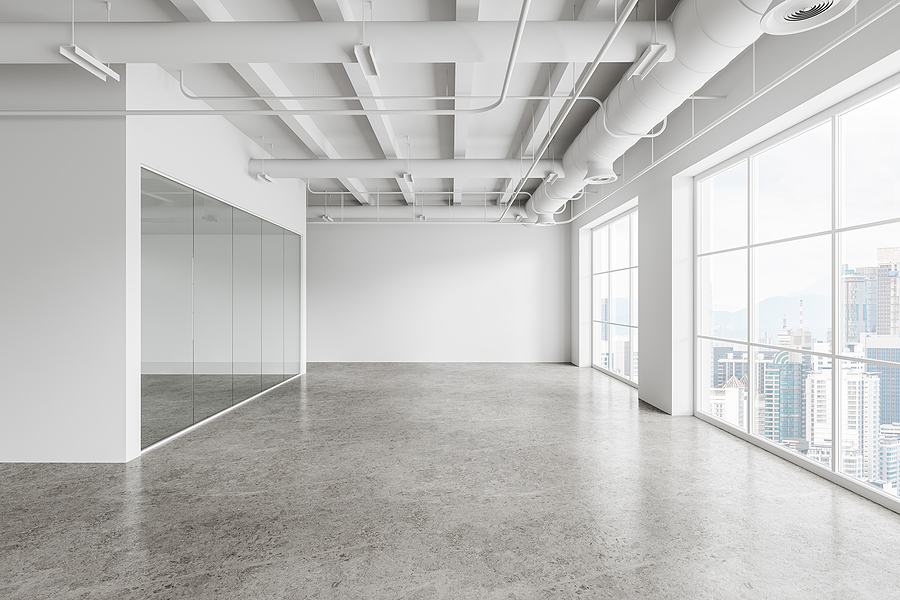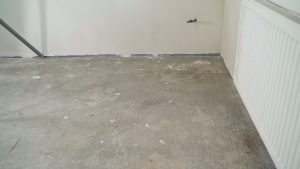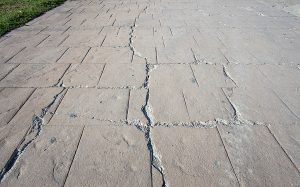When considering flooring options for your home or business, you might prioritize durability, aesthetics, and cost. However, one critical factor often overlooked is how different flooring materials affect indoor air quality.
Indoor air quality (IAQ) plays a significant role in maintaining a healthy living or working environment. Among the various flooring options available, concrete flooring stands out not only for its durability and versatility but also for its positive impact on IAQ.
How Flooring Affects Indoor Air Quality
Indoor air quality refers to the cleanliness of the air within and around buildings, particularly as it relates to the health and comfort of the occupants. Poor indoor air quality can lead to various health issues, including respiratory problems, allergies, and other chronic conditions.
Flooring materials significantly contribute to indoor air quality because they can emit volatile organic compounds (VOCs), harbor dust and allergens, and affect humidity levels.
Traditional flooring materials like carpets, vinyl, and some types of wood can release VOCs, especially when new. VOCs are chemicals that can evaporate into the air at room temperature, potentially causing headaches, dizziness, and other health issues. Additionally, carpets can trap dust, pollen, pet dander, and other allergens, which can be stirred up into the air, worsening the air quality.
Benefits of Concrete Flooring for Indoor Air Quality
Concrete flooring, on the other hand, offers several advantages that can contribute to better air quality:
Low VOC Emissions
Concrete itself is a low-VOC material. Unlike carpets and vinyl flooring, concrete does not emit harmful chemicals into the air.
Even when sealed or polished, the VOC levels remain significantly lower than those of other flooring options. This makes concrete an excellent choice for those concerned about indoor air quality, especially in homes with children, the elderly, or individuals with respiratory issues.
Allergen Resistance
Unlike carpets, which can trap allergens, concrete floors are smooth and easy to clean. Dust, pet dander, and other particles have nowhere to hide on a concrete floor.
Regular sweeping and mopping can easily remove these allergens, helping to maintain a cleaner, healthier environment. This is particularly beneficial for allergy sufferers, as reducing allergen exposure is key to managing symptoms.
Mold and Mildew Prevention
Concrete is highly resistant to moisture, especially when properly sealed. This resistance makes it less likely to harbor mold and mildew, which can thrive in damp environments and release spores into the air, negatively impacting indoor air quality. By preventing mold and mildew growth, concrete floors contribute to a healthier indoor environment.
Ease of Maintenance
Maintaining concrete floors is straightforward and requires minimal use of harsh chemicals. Traditional cleaning products often contain chemicals that can linger in the air and degrade air quality. With concrete floors, you can use mild, non-toxic cleaners to keep the surface clean, further supporting a healthier indoor environment.
Improved Air Circulation
The smooth, hard surface of concrete flooring can also aid in better air circulation. Airborne particles, such as dust and pollen, are less likely to cling to concrete, meaning they remain airborne for less time and are more easily filtered out by air conditioning or ventilation systems. This contributes to cleaner air and a more comfortable indoor environment.
Long-Term Health Benefits
By choosing concrete flooring, you’re investing in the long-term health of your indoor environment. Improved indoor air quality reduces the risk of health issues related to poor air quality, such as asthma, allergies, and other respiratory conditions. Additionally, a healthier indoor environment can lead to better overall well-being, improved concentration, and a more pleasant living or working space.
Improve Air Quality with Concrete Flooring
Concrete flooring is more than just a durable and stylish choice for your home or business. It also plays a significant role in maintaining and improving indoor air quality. With low VOC emissions, resistance to allergens, and easy maintenance, concrete floors help create a cleaner, healthier indoor environment. If you’re looking to enhance the air quality in your space while enjoying the benefits of a robust and versatile flooring option, concrete flooring is an excellent choice.
Invest in concrete flooring not just for its longevity and aesthetic appeal but for the health benefits it brings to your air quality.
Improve your indoor air quality with durable and eco-friendly concrete flooring. Contact Custom Concrete Prep & Polish today to learn how we can help you create a healthier and more beautiful space.



